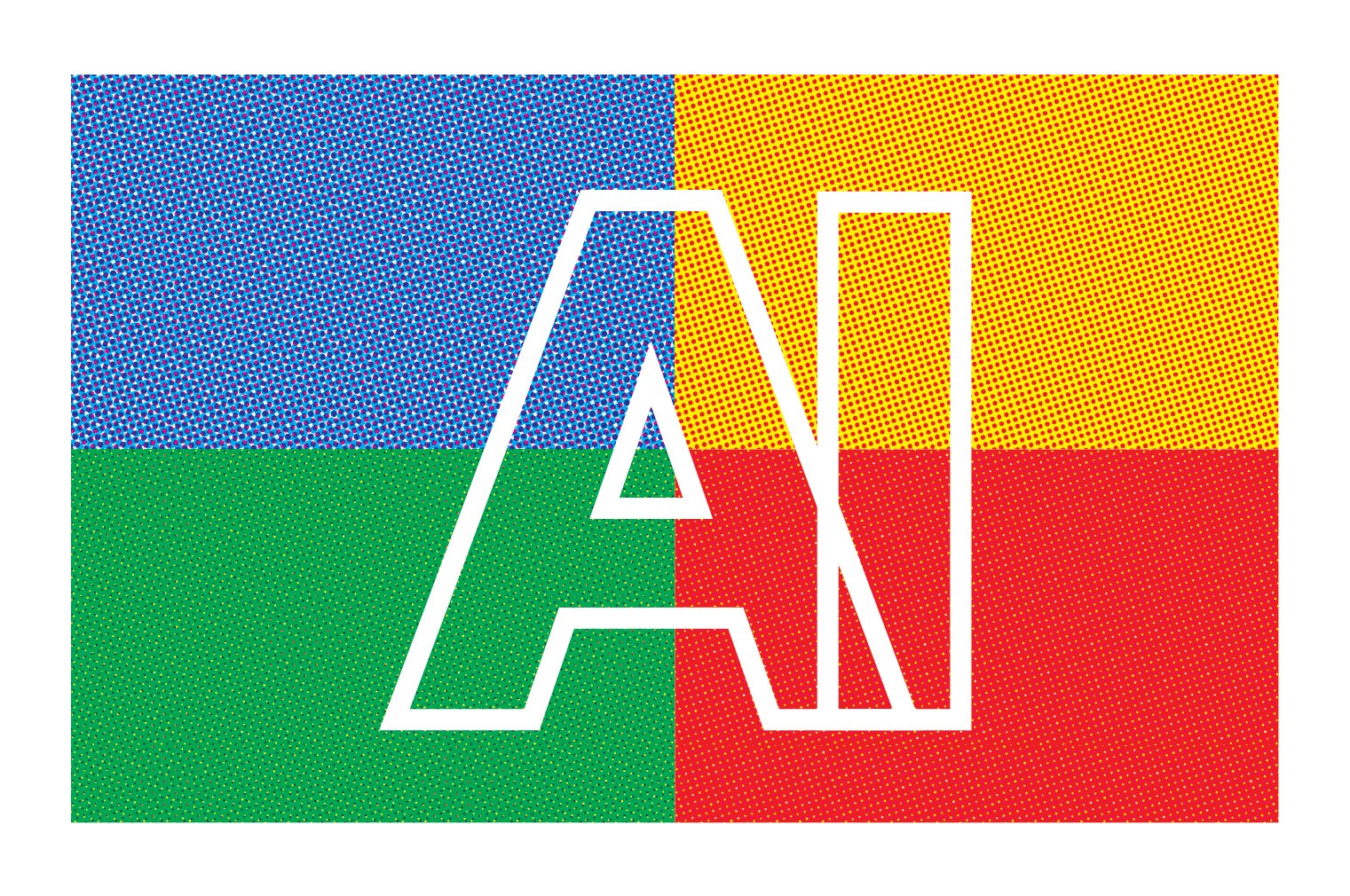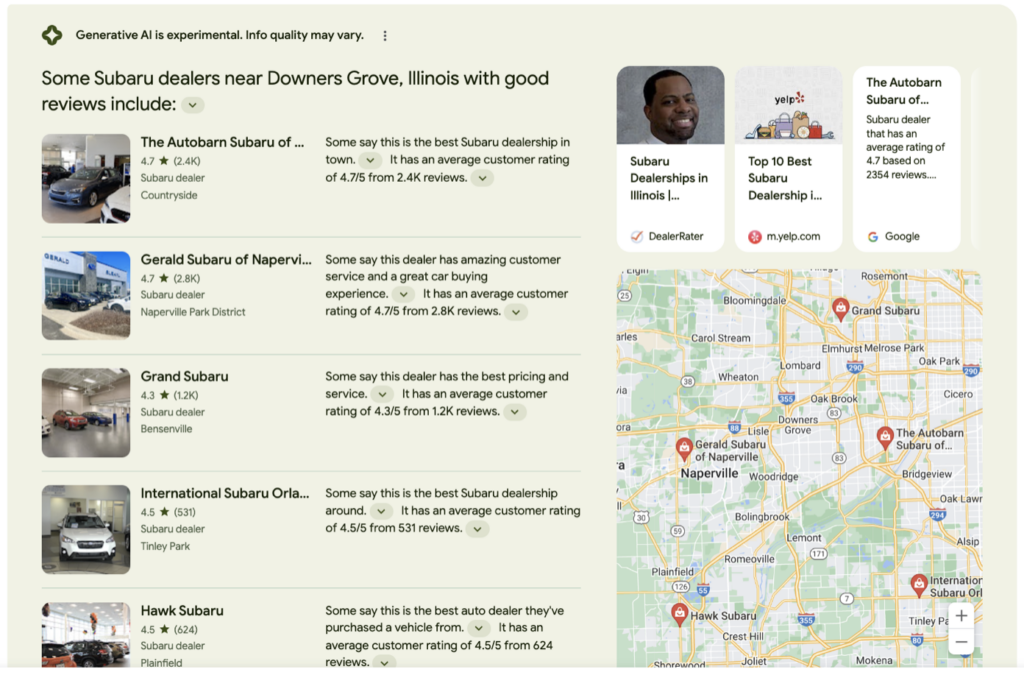Will Google Hit Its Stride with Generative AI?
Reputation Staff Writer

What does the new year hold for Google? This question needs to be asked annually when you consider that Google is one of the most influential brands of the 21st Century. And I think the answer for 2024 is clear: Google will start to move the needle with generative AI.
A Mixed 2023 for Google and Generative AI
Google has been embedding AI into its core products for years, but for the first half of 2023, the company faced some criticism for falling behind with generative AI. That’s because OpenAI beat Google to market with its much-vaunted ChatGPT while Google kept its own research into large language models (LLMs) under wraps. Most of the problem was a PR issue. Google wasn’t doing anything “wrong” by moving at a more deliberate pace with the development of its own LLM while OpenAI received a massive amount of press and attention amid the widespread adoption of ChatGPT. Considering that much of the attention ChatGPT received was focused on its LLM being inaccurate and biased, Google was probably justified by slow-playing what it did have and charting its own course.
But the pressure to rush an LLM to market became intense, and eventually Google released its Bard LLM in the first quarter of 2023 even though Bard was a work in progress. The company ended up catching even more flak when it became clear that Bard was a highly imperfect model that was at least as problematic as ChatGPT.
But Google started to hit its stride with the release of the Generative Search Experience, which uses generative AI to offer complete snapshots of content as answers to queries, rather than providing limited snippets and website links. This approach allows search to unfold as a series of refined questions and follow-ups, similar to the way ChatGPT functions. As we noted at Reputation, SGE is already changing how local search functions.
Looking at 2024
As it turns out, Google was laying the groundwork for a stronger 2024 with the release of another significant product, Gemini. This is a family of LLMs developed by Google AI and DeepMind to comprehend and generate text, code, images, and even multimodal combinations like scripts with corresponding visuals. Although Gemini is under development, Google has taken steps to make Gemini accessible via API. This enables developers and enterprises to build their own applications and products utilizing Gemini’s capabilities.
In a demonstration, Google showed how Gemini can accurately interpret drawings of animals and objects, and provide accurate, insightful answers based on its powerful interpretation:
This is worth watching closely to give you a sense of just how smart generative AI is getting.
So, why does Gemini matter? After all, ChatGPT is also evolving beyond text-based queries. The answer: Google Search. Search is more than a product. It’s the center of Google’s powerful ecosystem of experiences for consumers and businesses, including Google Business Profiles, Google Maps, and the $163 billion Google Ads business. When Google changes Search, the reverberations are felt far and wide.
Because Gemini can process text, code, audio, and images together, this allows it to grasp the nuance and intent behind even complex queries, providing more accurate and relevant results. Let’s take a look at how the incorporation of Gemini could affect how consumers and brands interact on Google Business Profiles. Because of Google’s breakthrough with SGE, consumers can now get a far more concise summary of a business’s key location information on its Profiles – including consumer reviews/ratings. This is a far more efficient way to help people do location-based searches than sending them to other links for more information, as Google has done for years:

How Gemini Changes Things
When Gemini becomes adopted fully, the interaction between consumers and Google Business Profiles will become more dynamic and richer, incorporating video and images. For instance, let’s say someone leaves a review of a local Starbucks, Best Buy, or Ford dealer, and they include images or videos in their commentary. A couple of exciting things can happen with a search that incorporates Gemini:
- Google can give the searcher a more complete review, synthesizing not only written text and star ratings but also the visual content.
- Potentially, businesses could use this data to do real-time customer service support. Envision a customer posting a photo of a leaky faucet in the Google Business Profile of a restaurant, and the review turns up in search results. With Gemini, Google could analyze that photo and interpret the customer’s sentiment as negative even if the person who posted the photo wrote no text to go along with it. The business owner, thus alerted, could take action sooner.
I also expect Google will use Gemini to make Google Maps an even more immersive experience than it already is. Google is already using AI to make Google Maps more immersive by analyzing billions of user-uploaded photos to help people find unusual things, like coffee shops that serve lattes with panda faces. People can type specific questions into Maps, just like they do with Search, to get a list of nearby businesses or locations that match the query, based on a real-time analysis of user photos.
Gemini’s ability to handle multimodal data opens doors for enriching the map with dynamic content beyond static images and text. Interactive 3D models of buildings or historical sites, immersive soundscapes of local streets, and even augmented reality overlays showcasing historical events could bring locations to life. By the same token, businesses could use Gemini to create engaging, multimedia profiles. Imagine virtual tours that showcase the atmosphere and offerings of a restaurant, interactive 3D models of shops highlighting their latest products, or personalized video messages welcoming customers.
This is all forward-thinking stuff, to be sure. But at a time when user-generated content continues to embrace video and visual storytelling, we’re seeing Google open up a potential load of unstructured content that will make reputation management more relevant and timelier. This is where Google will make its mark in 2024 – not necessarily because Gemini is better than any other multi-modal LLM but because of the intersection between Gemini and Search.
For now, Google has been testing Gemini in Search since 2023, and Google says it has reduced the latency of Search Generative Experience responses by 40 percent for English in the United States. My advice to brands: start using Bardl and compare the quality of the results to ChatGPT. That’s because Google is already embedding Gemini into Bard. Testing search queries inside these two models will help you get more accustomed to how Google Search will change.
At Reputation, we’re constantly adapting our own reputation management platform to account for changes in search and AI. Explore our website to learn more about us.
